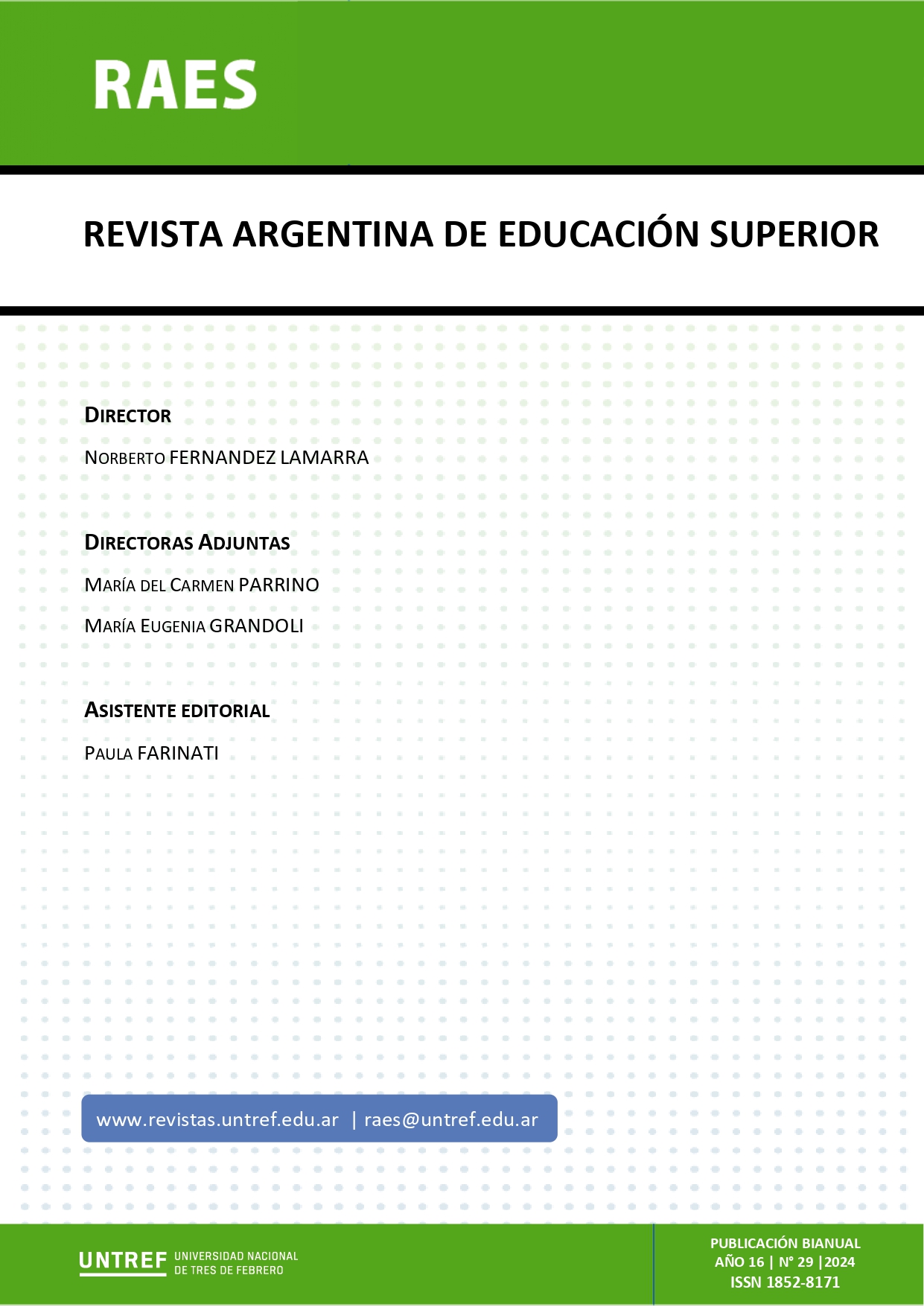Currículum y producción de saberes de enseñanza en la Universidad Nacional de José C. Paz
Abstract
The founding of the National University of José C. Paz is part of the process of creating universities that took place in our country between 2009 and 2015. The territorial anchorage and the inclusive imprint with which they were created made possible the access to the level to a sector of the population that, in general terms, had not done so previously. At the same time, new challenges and ways of conceiving and developing university teaching emerged.
In relation to the aforementioned process, in this article we analyze a series of practices and meanings that are built on teaching in the context of UNPAZ and the legal profession in particular. To do this, we focus on two aspects, in a related manner: firstly, on the curricular dimension, analyzing the ways in which these orientations influence the perspectives of teachers on teaching and its deployment; secondly, in the processes of situated production of knowledge linked to the transmission of content (teaching knowledge).
Our theoretical positioning frames a conception of teaching in which its historical-social and political-institutional character is highlighted (Rockwell and Mercado, 1990; Terigi, 2004), a view of the curriculum as a regulatory order of pedagogical practices (Gimeno Sacristán, 2020), and an understanding of teaching knowledge as temporary, open and permeable for eventual reformulations (Tardif, 2014; Mercado, 2002).
The empirical material analyzed is made up of a corpus of interviews with teachers of the career under study, carried out during 2022.
PDF (Español (España)) - Artículo descargado = 119 veces
HTML (Español (España)) - Artículo descargado = 31 veces




